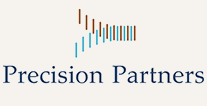Advancement operations—fundraising, alumni engagement, and donor relations—are crucial to an institution’s success. However, many institutions face the challenge of limited resources and budgets when it comes to Advancement.
The key to success lies in strategic planning, adaptability, and a relentless focus on your institution’s mission. With the right approach and a dedicated team, you can achieve remarkable results and advance your institution’s goals even in resource-constrained environments.
Here are our top five suggestions to employ strategic approaches that maximize Advancement’s ability to thrive with limited resources and budgets.
Data-Driven Decision-Making
Investing in donor management software streamlines data collection and analysis, helping you make informed decisions. Data is your most valuable asset, especially when resources are scarce. You can leverage data analytics to identify your most promising donor prospects, understand their giving behaviors, and tailor your engagement strategies accordingly.
Data enables you to send segmented messages. Segmentation allows you to deliver personalized messages and appeals suited to donor desires. By sending targeted communications, you increase the likelihood of donors responding positively.
Data helps you uncover trends and opportunities, enabling you to understand where they’ll have the most significant impact and allocate resources effectively.
Relationship Building and Stewardship
Institutions often far short when it comes to building solid, long-lasting relationships with donors. Yet, this can be one of the most cost-effective ways to secure support. Strong relationships can increase giving and referrals, making the most of your limited resources.
Regularly engage with donors through personalized communications, acknowledge their contributions and update them on the impact of their gifts. Implement a donor recognition program to express gratitude and foster loyalty.
Volunteer Engagement
Volunteers can extend your reach, enhance engagement efforts, and reduce operational costs. Their involvement can contribute to fundraising and strengthen the sense of community and connection within your institution.
Leverage your alums and supporters as volunteers. Implement a robust volunteer management system to match volunteers with suitable roles and ensure they feel appreciated. Encourage them to participate in fundraising campaigns, organize events, or mentor students.
Collaborative Partnerships
Collaboration is key when Advancement resources are scarce. Collaborative efforts can reduce costs, pool resources, and expand your reach. Seek partnerships with other departments within your institution, external organizations, and businesses with a similar or complementary mission.
For example, partner with academic departments to create fundraising campaigns that align with their programs or collaborate with local businesses for sponsorships or in-kind donations for events.
By collaborating with internal and external partners, you achieve more significant results with fewer resources.
Digital Fundraising and Marketing
Digital tools offer cost-effective opportunities for fundraising and engagement. Invest in online fundraising platforms that offer streamlined donation processes, security, and data tracking. Maximize your online presence through social media, email marketing, and a user-friendly website.
Consider hosting virtual events, webinars, and crowdfunding campaigns to expand your fundraising capabilities without the overhead of physical events. Remember to create compelling campaigns that resonate with your audience and make donating easy.
Limited resources and budgets may present challenges for advancement operations, but they also offer opportunities for creativity and efficiency. By employing these five strategies, you can maximize your impact without breaking your budget.

